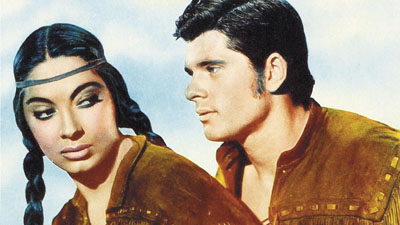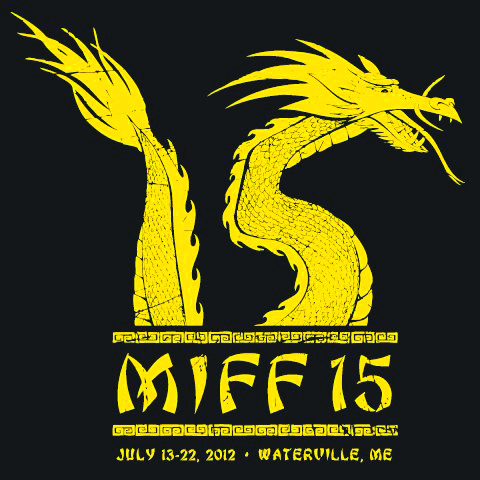“The West is dead … you may lose a sweetheart, but you won’t forget her.”
— Charles M. Russell
So how big was the big American Western sky that sat like a Matisse blue umbrella over Lewis and Clark, Daniel Boone, Kit Carson and Sam Houston?
It was big and clean and clear, and when it was blue, it was blinding. When those massive thunderheads roared out of the West, even Doc Holliday and Wyatt Earp took refuge in the Silver Dollar Saloon. It’s no wonder that Hollywood, from the silents on, fell in love with it.
But long before infamous gunmen covered it all over with blood and mud and fabulous legends, there was another breed of men, the Southern men who grew tired of the swamps and boated through the roaring rivers to trap and hunt, fish, fight and foot-race across the virgin breast of Mother America, and this brings us to the Maine International Film Festival’s presentation of the “Big Sky.”
But long before infamous gunmen covered it all over with blood and mud and fabulous legends, there was another breed of men, the Southern men who grew tired of the swamps and boated through the roaring rivers to trap and hunt, fish, fight and foot-race across the virgin breast of Mother America, and this brings us to the Maine International Film Festival’s presentation of the “Big Sky.”
Before viewing Howard Hawks’ “Big Sky,” consider the work of this great director. This is the man who brought us “To Have and Have Not,” “Red River,” “The Big Sleep” and “Scarface,” just to name a few. Howard always liked the American Western, and “Rio Bravo” and “Red River” were his best.
Kirk Douglas was Hawks’ kind of actor: big, full of fire and energy, an actor who really did ride and shoot. We know him as the boxer in “Champion” and the doomed trumpet player in “Man With a Horn.”
But Kirk the gunfighter, the horseman, roared across the screen in dozens of westerns. To my count he made at least 18 of them. That’s a lot of horsepower.
Consider Kirk as Dempsey Rae in “Man Without a Star,” Taw Jackson in “War Wagon” with John Wayne, or his two very best: Jack Burns in “Lonely Are the Brave,” written by Dalton Trumbo, and as Doc Holliday in “Gunfight at the OK Corral.” Kirk Douglas owned the cinematic West as much as John Wayne.
“Big Sky” is not of the caliber of “Lonely Are the Brave,” but with the teaming of Hawks and Douglas, it stands its ground.
Here Douglas bonds with Boone Caudill (Dewey Martin), who back in the ’50s was one of Hollywood’s young leading men, in a sort of buddy-road movie to see the West.
Douglas is Jim Deakins, a gnarly man who drained all he could out of early Kentucky and Tennessee, and is looking for adventure and game, and possibly women, in the great Pacific Northwest.
Kirk teams up with boyish Boone Caudill in the 1830s, when the children of tobacco farmers, swamp fishermen and school teachers grew restless and joined up with French trappers down from Quebec to explore the great Northwest.
Hawks fills his big black-and-white screen with gun and knife fights, river rafting and territorial adversaries — the meat and potatoes of westerns. Instead of focusing on the vast horizon and blowing wind of the plains like Ford, or the oceans of bison in “Dances With Wolves,” Hawks zeroes in on the characters and how they suffered and survived the vortex of natural and manmade violence they were all swept up in.
Douglas knew he was the star, but he had spent so much time in the saddle that he let the focus fall on young Boone and the love affair with the preternaturally beautiful Indian princess Teal Eye (Elizabeth Threatt). The gorgeous Threatt, taller than both men, brings her own insurance for the trip to ease the way through hostile tribes.
Hawks gave us great heroes, but he always had a soft spot for the character actors. As in “Red River,” Hawks picks out an old-timer, a seasoned, hard-bitten prophet, wise in the ways of danger. He gives us the crafty Jim Davis as Streak, a bad guy with a patch of white hair; and the reliable Steven Geray as the French boatman.
However, it’s the great Arthur Hunnicutt who steals the movie as Zeb Callaway with lines that included “This hoss has seen a heap of livin’.” His performance earned him an Oscar nomination.
I should note that “Big Sky” was adapted from the novel “Big Sky” by one of America’s greatest western writers, A.B. Guthrie Jr., who won the Pulitzer Prize for fiction in 1950 for his novel “The Way West.” He is probably best known for the script of Hollywood’s most famous western, “Shane,” starring Alan Ladd. It’s nice to welcome Hawks, Douglas and the great American western back to Maine.
Send questions/comments to the editors.




Success. Please wait for the page to reload. If the page does not reload within 5 seconds, please refresh the page.
Enter your email and password to access comments.
Hi, to comment on stories you must . This profile is in addition to your subscription and website login.
Already have a commenting profile? .
Invalid username/password.
Please check your email to confirm and complete your registration.
Only subscribers are eligible to post comments. Please subscribe or login first for digital access. Here’s why.
Use the form below to reset your password. When you've submitted your account email, we will send an email with a reset code.